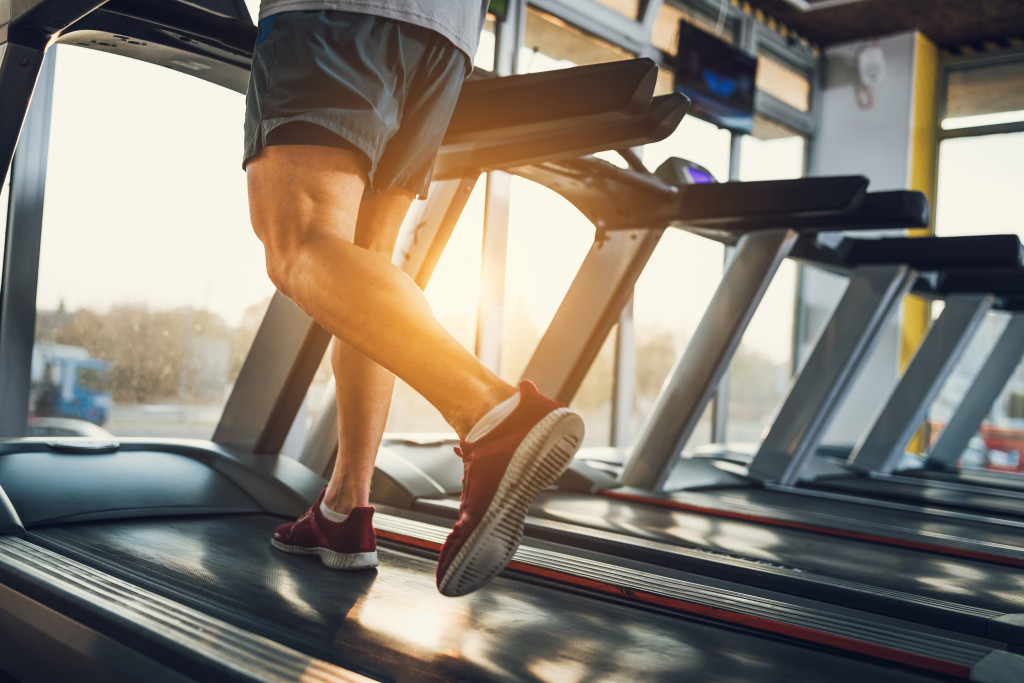According to surveys, around 18 million individuals consult a medical professional to have their knee pain treated. This common condition can hinder a person from engaging in physical activities such as household chores, climbing stairs, and exercise. Among the most common causes of knee pain include injuries or fractures, arthritis, and mechanical problems like dislocated kneecap and iliotibial band syndrome.
If you’re experiencing mild to moderate pain, you can likely relieve it with simple lifestyle changes and home remedies. Such natural pain relief tips can help in managing symptoms and improving comfort levels. Read on to find out some of the best natural remedies for knee pain that you can try.
Provide protection or support
If you are experiencing swelling in your knees, you can reduce it by keeping them elevated and wearing a compression bandage. Broken arches can lead to abnormal wear and force on your knees, so it’s suggested that you wear supportive shoes. Specialists also recommend wearing special insoles for those who have knee osteoarthritis.
If you need to control your movement and stabilize and support an injured knee, wearing a hinged knee brace is highly advisable. Braces can minimize pressure and pain on your knees. Consult a physical therapist to determine the best type of support you need to wear.
Consider relieving therapies
There are tons of simple therapies that can relieve your knee pain. The most popular is physical therapy, which generally involves electrical stimulation and ultrasounds and manual therapy for treating spasms. You can get this type of therapy in outpatient clinics, hospitals, cardiac rehab centers, or call in a therapist to visit you at home. A physical therapist will evaluate joint mobility, strength, balance, flexibility, and, of course, the pain itself.
Next is massage, which can alleviate knee pain by using varied techniques. Popular types include Shiatsu, trigger point, deep tissue, and Swedish massage. Lasting around 30 to 60 minutes, patients with chronic knee pain are advised to finish a series of massage therapy sessions.
The third alternative for relieving knee pain is ice or heat therapy. Rheumatologists claim that cold compresses can dull the pain better, while heat patches are best for relieving pain due to osteoarthritis. Apart from pain, this treatment can also help reduce tissue bleeding, swelling, and inflammation.

Engage in daily exercises
One common way to maintain mobility and keep those muscles strong is through regular exercise. You can indeed avoid the pain by limiting your movement or resting your legs. However, doing so can also stiffen your joints and slow down your recovery. According to experts, not having enough exercise can speed up the rate of joint damage, especially for those with osteoarthritis.
If you have osteoarthritis, it’s highly suggested to have an exercise buddy or a personal trainer with you for extra help. Some of the best low-impact activities include yoga, tai chi, water exercise, swimming, cycling, and walking. But if you have severe knee pain or an injury, take a rest from working out and try to find gentler options you can engage in. Consult a physical therapist to ask for a custom program that suits you.
Lower your stress levels
If you have knee osteoarthritis or other chronic condition, it’s advisable to reduce your stressors. Stress can worsen your condition, causing muscle tension in your body. It can result in depression and frustration by boosting your pain perception. Ease your stress levels by engaging in relaxation techniques that suit your lifestyle. You can try qi gong, tai chi, mindfulness meditation, guided imagery, and deep breathing. Reach a state of complete calmness by practicing these techniques regularly.
Manage your weight
Did you know that knee pain can be a result of obesity or excess weight? Basically, your joints need to work harder if there’s extra weight in the body. Unhealthy weight can also trigger inflammation on your knees and other parts of the body. This is why healthcare professionals suggest maintaining a healthy weight.
Doing this will help lower your risk of having long-term knee pain or even arthritis. Start a balanced diet that is low in animal fat and meat but high in fiber, vegetables, and fruits. Many dietitians recommend opting for a Mediterranean-style diet.
Please note that these tips are just general recommendations for alleviating mild to moderate knee pain and should not be taken as professional medical advice. If you’re experiencing severe pain, consult a healthcare expert for proper diagnosis and treatment. Watch out for the worsening symptoms and visit your doctor immediately.
